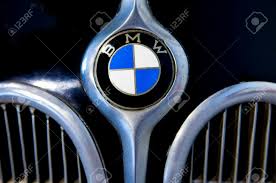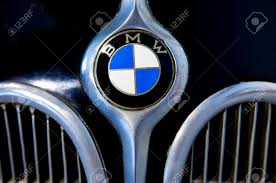
German car maker BMW’s second quarter performance has been hit by currency fluctuations as well as the increasing costs of development and production of electric vehicles and hybrid cars with the aim of meeting up with the stricter emissions limits in Europe and well as in other markets of the company which resulted in its quarterly earnings drop by 20 per cent. The company however maintained its earlier outlook for the entire year.
BMW and other European car makers are under pressure to invest extensively in the development and manufacturing of lower emission vehicles to meet the stricter carbon emission legislation due to be implemented starting 2021, which resulted in a drop in the earnings before interest and taxes (EBIT) fell to 2.2 billion euros or $2.4 billion in the second quarter, the company said.
With the aim development of manufacturing capacity for electric and hybrid vehicles, the company’s second quarter investments in property, plant and equipment increased by 39 per cent year on year. A part of the investment was also made towards equipping its factories with production lines for building new models as well as to make them more flexible so that the company is able to manufacture both electric and combustion-engined vehicles, the company said.
During the second quarter, despite a rise of 1.5 per cent in the sale of vehicles, there was a drop in the operating margin of its automotive division which came in at 6.5 per cent compared to 8.6 per cent reported by the company in the same period a year ago.
For the entire year of 2019, there is an expected significant drop in group profit before tax, BMW reiterated. It also stressed that there will also be a small increase in vehicle deliveries while also forecasting an EBIT margin of between 4.5 per cent and 6.5 per cent for its automotive business.
While other car makers Fiat Chrysler and Volkswagen retained their forecast for the entire of 2019, BMW’s main rival Daimler did a downward review of its outlook for the same period. All auto companies have been hit by a shrinking consumer confidence leading top reduced demands because of a global trade war. China, the fastest growing auto market in the world is among the worst affected in terms of demand growth.
While discussing the quarterly performance of the company in an investor call, BMW’s Chief Executive Harald Krueger said that he hoped that business interests would be seriously considered by the British Prime Minister Boris Johnson during his preparations for a negotiation with the European Union over the UK’s planned exit from the block.
If the UK chose to leave the EU without negotiating any deal on trade, it would negatively impact both London and Brussels, Krueger said.
“Listen to the economy and listen to the people. He needs to be in a dialogue with business. I would visit Johnson to tell him this,” Krueger said while answering a question about what his suggestion would be for the British prime minister with respect to Brexit.
(Source:www.reuters.com)
BMW and other European car makers are under pressure to invest extensively in the development and manufacturing of lower emission vehicles to meet the stricter carbon emission legislation due to be implemented starting 2021, which resulted in a drop in the earnings before interest and taxes (EBIT) fell to 2.2 billion euros or $2.4 billion in the second quarter, the company said.
With the aim development of manufacturing capacity for electric and hybrid vehicles, the company’s second quarter investments in property, plant and equipment increased by 39 per cent year on year. A part of the investment was also made towards equipping its factories with production lines for building new models as well as to make them more flexible so that the company is able to manufacture both electric and combustion-engined vehicles, the company said.
During the second quarter, despite a rise of 1.5 per cent in the sale of vehicles, there was a drop in the operating margin of its automotive division which came in at 6.5 per cent compared to 8.6 per cent reported by the company in the same period a year ago.
For the entire year of 2019, there is an expected significant drop in group profit before tax, BMW reiterated. It also stressed that there will also be a small increase in vehicle deliveries while also forecasting an EBIT margin of between 4.5 per cent and 6.5 per cent for its automotive business.
While other car makers Fiat Chrysler and Volkswagen retained their forecast for the entire of 2019, BMW’s main rival Daimler did a downward review of its outlook for the same period. All auto companies have been hit by a shrinking consumer confidence leading top reduced demands because of a global trade war. China, the fastest growing auto market in the world is among the worst affected in terms of demand growth.
While discussing the quarterly performance of the company in an investor call, BMW’s Chief Executive Harald Krueger said that he hoped that business interests would be seriously considered by the British Prime Minister Boris Johnson during his preparations for a negotiation with the European Union over the UK’s planned exit from the block.
If the UK chose to leave the EU without negotiating any deal on trade, it would negatively impact both London and Brussels, Krueger said.
“Listen to the economy and listen to the people. He needs to be in a dialogue with business. I would visit Johnson to tell him this,” Krueger said while answering a question about what his suggestion would be for the British prime minister with respect to Brexit.
(Source:www.reuters.com)





